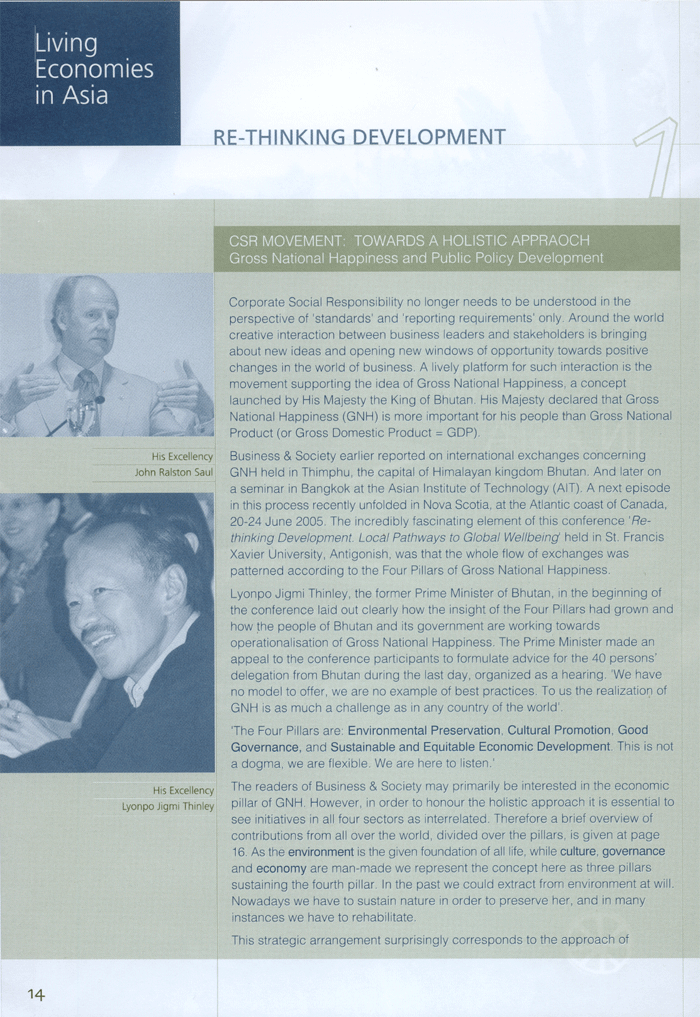
RETHINKING DEVELOPMENT
Local Pathways to Global Wellbeing
St. Francis Xavier University, Antigonish, Nova Scotia, Canada
June 20 to June 24, 2005
LIVING ECONOMIES IN ASIA RE-THINKING DEVELOPMENT
CSR MOVEMENT: TOWARDS A HOLISTIC APPROACH
Gross National Happiness and Public Policy Development
Business & Society earlier reported on international exchanges concerning GNH held in Thimphu, the capital of Himalayan kingdom Bhutan. And later on a seminar in Bangkok at the Asian Institute of Technology (AIT). A next episode in this process recently unfolded in Nova Scotia, at the Atlantic coast of Canada, 20-24 June 2005. The incredibly fascinating element of this conference 'Re-Thinking Development, Local Pathways to Global Wellbeing' held in St. Francis Xavier University, Antigonish, was that the whole flow of exchanges was patterned according to the Four Pillars of Gross National Happiness.
Lyonpo Jigmi Thinley, the former Prime Minister of Bhutan, in the beginning of the conference laid out clearly how the insight of the Four Pillars had grown and how the people of Bhutan and its government are working towards operationalisation of Gross National Happiness. The Prime Minister made an appeal to the conference participants to formulate advice for the 40 persons' delegation from Bhutan during the last day, organized as a hearing. 'We have no model to offer, we are no example of best practices. To us the realization of GNH is as much a challenge as in any country of the world'.
'The Four Pillars are: Environmental Preservation, Cultural Promotion, Good Governance and Sustainable and Equitable Economic Development. This is not a dogma, we are flexible. We are here to listen.'
The readers of Business & Society may primarily be interested in the economic pillar of GNH. However, in order to honour the holistic approach it is essential to see initiatives in all four sectors as interrelated. Therefore a brief overview of contributions from all over the world, divided over the pillars, is given at page 16. As the environment is the foundation of all life, while culture, governance, and economy are man-made we represent the concept here as three pillars sustaining the fourth pillar. In the past we could extract from environment at will. Nowadays we have to sustain nature in order to preserve her, and in many instances we have to rehabilitate.

Sealevel